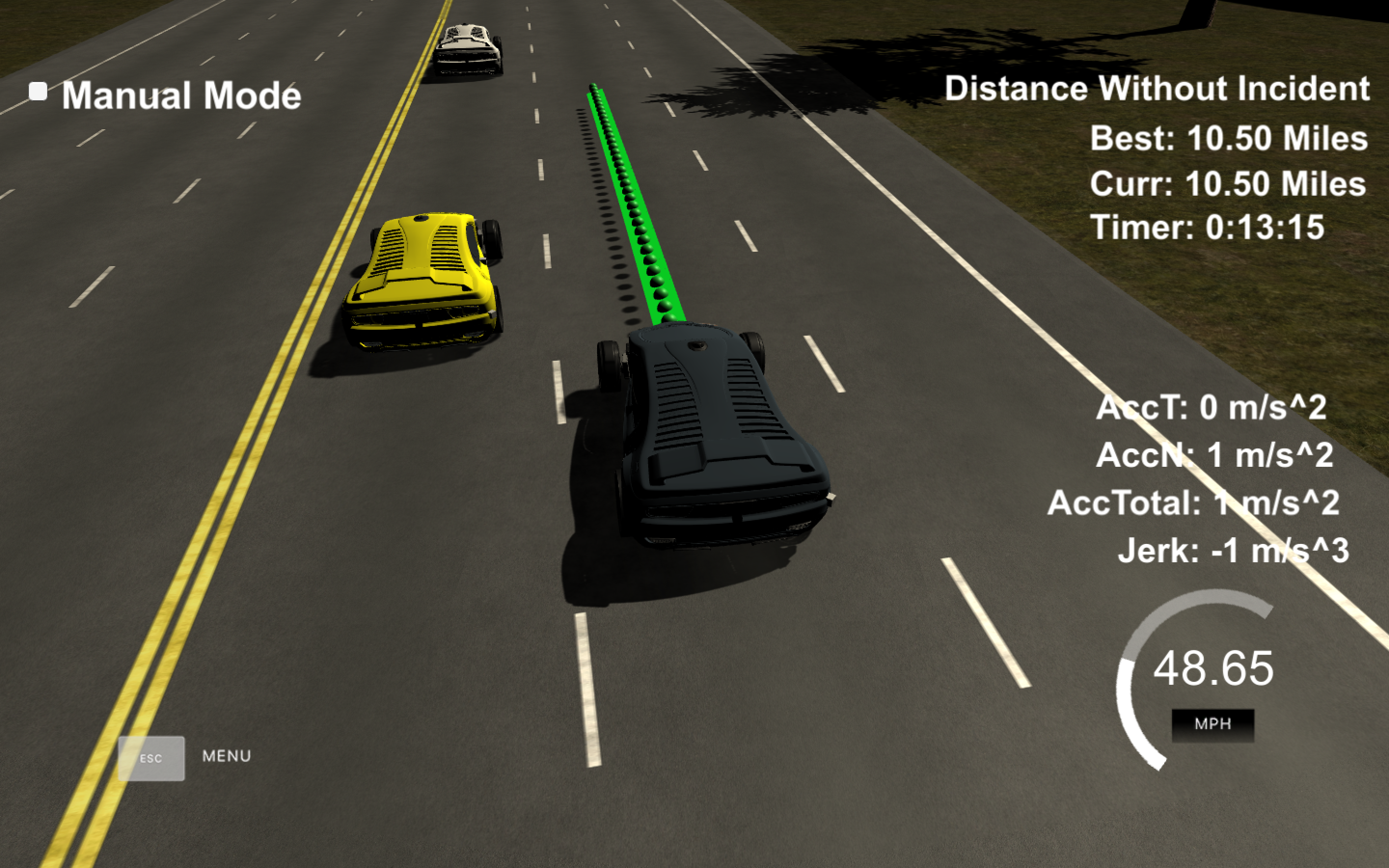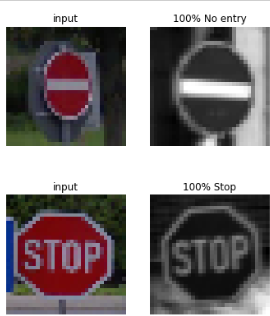Projects
| Project | Description | Example Output | Links |
|---|---|---|---|
| Highway Path planner | Used the car’s localization and sensor fusion data for prediction of other vehicles, decision making, and trajectory planning. Easily drove 20+ miles autonomously without accidents (required was 4mi) within the given restrictions of jerk and max speed |
 |
[code] |
| Traffic Sign classifier | Used a Deep Convolution Neural Net to learn features from a German Traffic dataset. The model could then accurately classify real-world traffic sign images |  |
[blog and code] |
| Multi-image Panorama Stitching | Used OpenCV to implement SIFT, RANSAC and other algorithms to stitch multiple images into a panorama |  |
[code] [demo] |
| Game of Life using Deep Neural Net | Created a neural net to simulate Conway’s Game of Life. Learns to generate the next state from any given random initial state |  |
[code] |
| SarcDetect | Uses transfer learning for sarcasm detection in English Tweets (via ULMFiT) |  |
[blog] |
Publications
Proceedings of the International Conference on Informatics and Analytics (ICIA-16). ACM, New York, NY, USA.
My first research effort focused on developing a novel mechanism for automatically creating summaries of textual documents. I found a way to use sentiment analysis along with appropriate fallback mechanisms to achieve the needed results.
Top Blogs
15 Sep 2018 » SarcDetect: Sarcasm detection with transfer learning
ULMFiT is a great technique for applying transfer learning in nlp. It has shown to achieve great results with small amounts of data. So, when I came across the SemEval2018 task for irony detection, I wanted to put it to the test.
17 Aug 2017 » What You See Is Not What You Get: Experiments in fooling neural nets
Image Recognition has penetrated our everyday lives, from small conveniences such as searching by images and tagging photos to self driving cars. But even with all these advances, the neural nets used for these tasks still remain “naive” and can be easily fooled
20 Aug 2016 » Quibble: Marks Analytics Software
Quibble is a marks entering software which automates the process of Internal Assessment Tests mapping with course outcome mapping and various marks calculations. It makes use of a database to store all details required, allowing the user to pickup their work from where they left-off. It does various sanity checks and validations to avoid potential mistakes. The software automatically generates attainment for each Course outcome dependent on given criteria.
17 Aug 2016 » Guide to Abuse Filters
Abuse Filters are used in a mediawiki environment to prevent certain pre-defined actions. The filter can then be configured to take specific actions against the user. This guide teaches you how to create new filters and configure them.